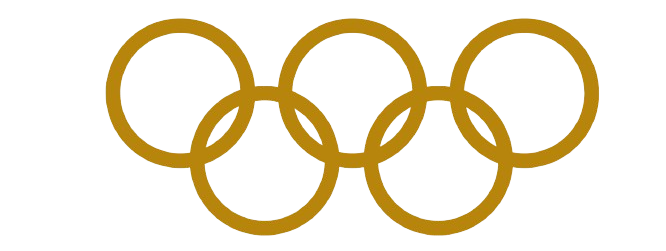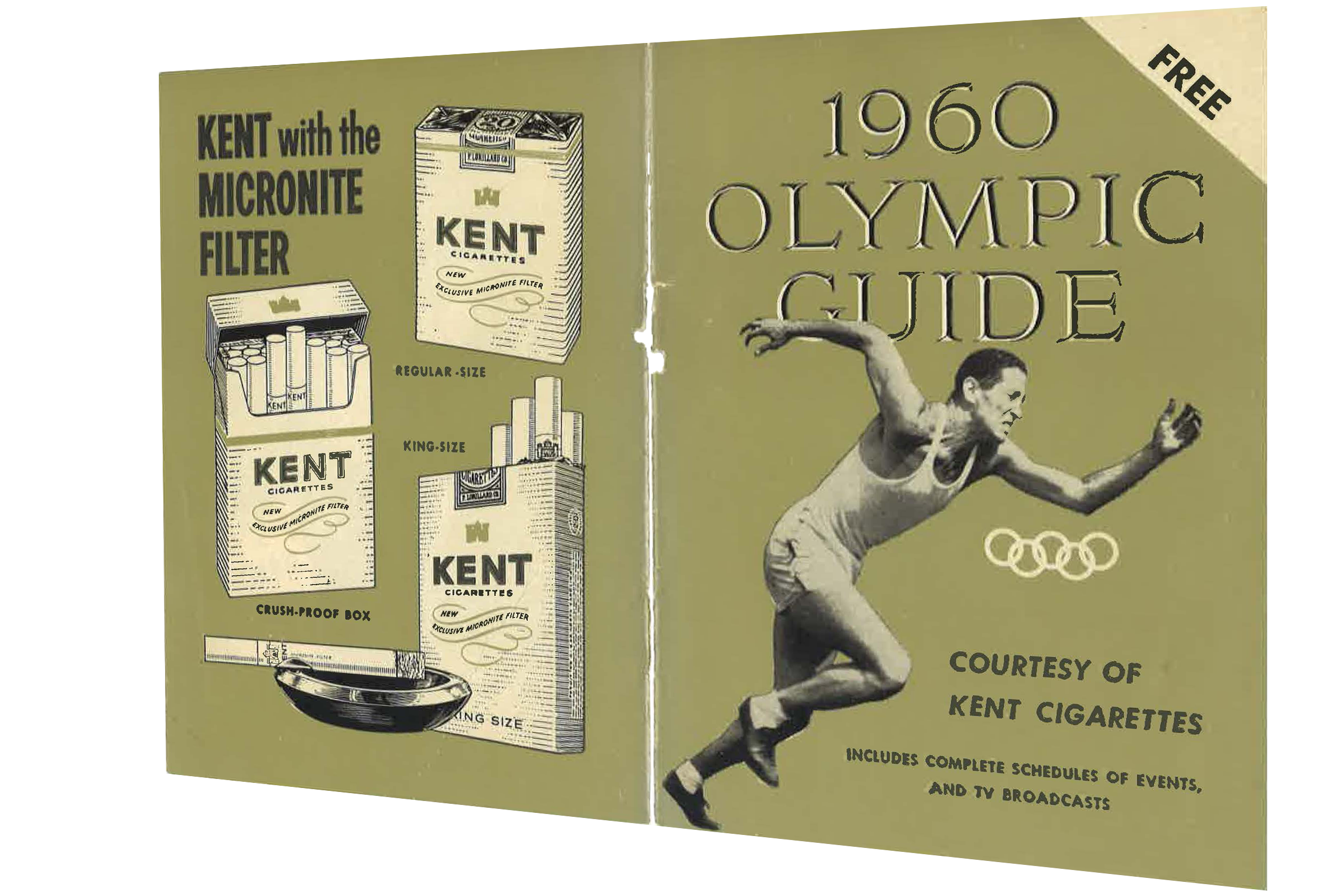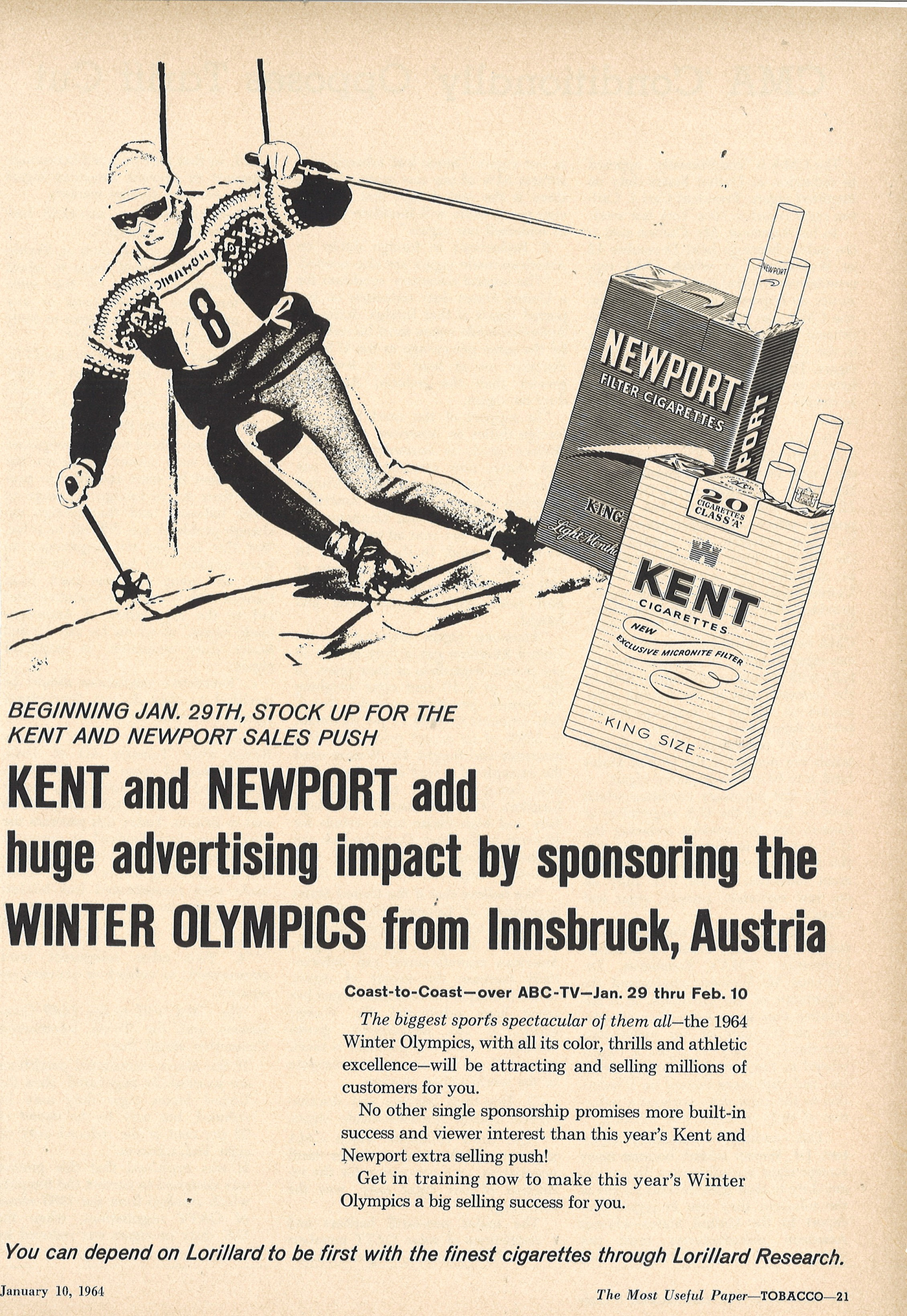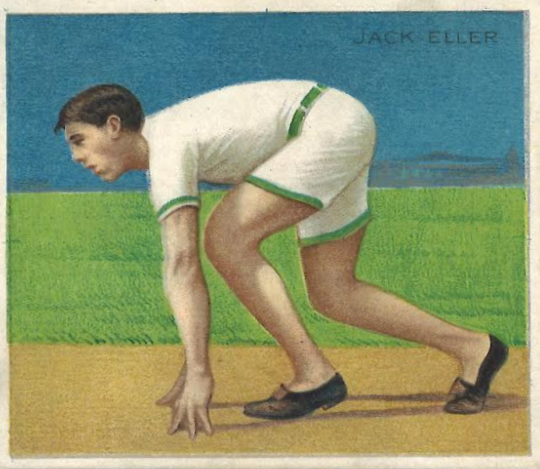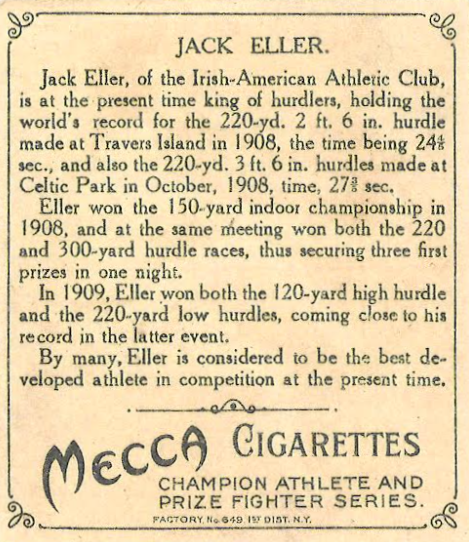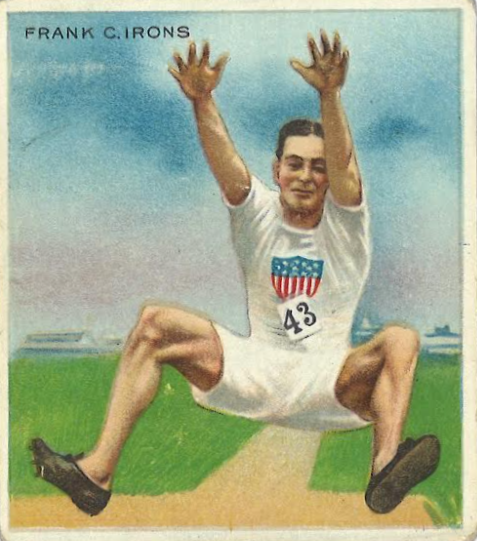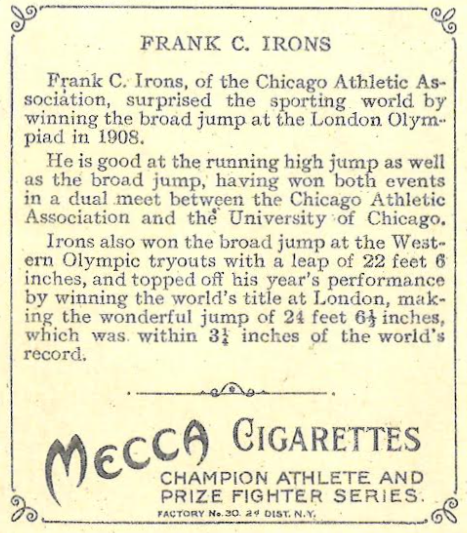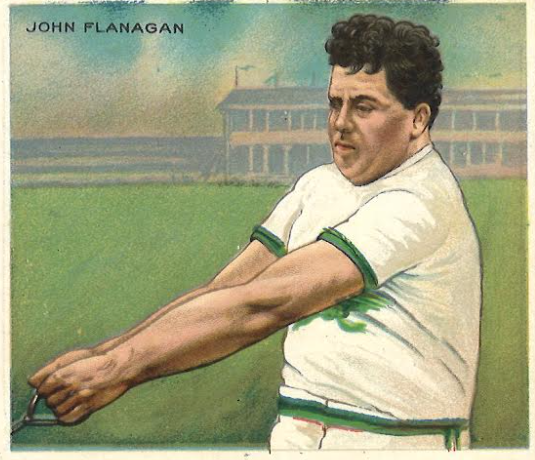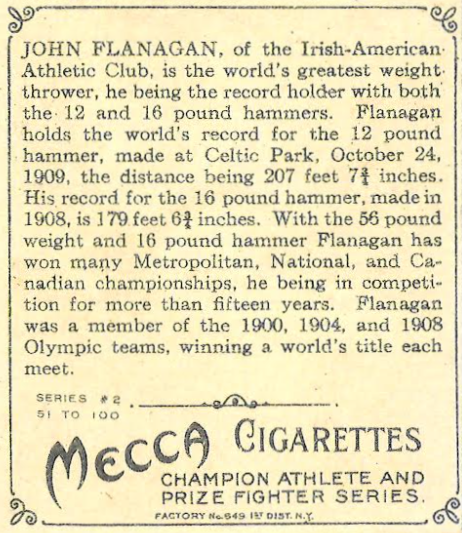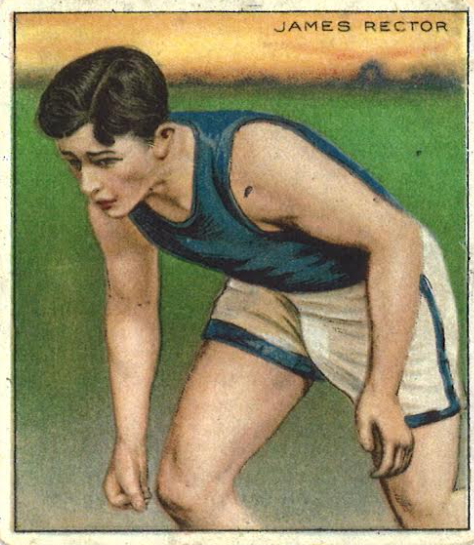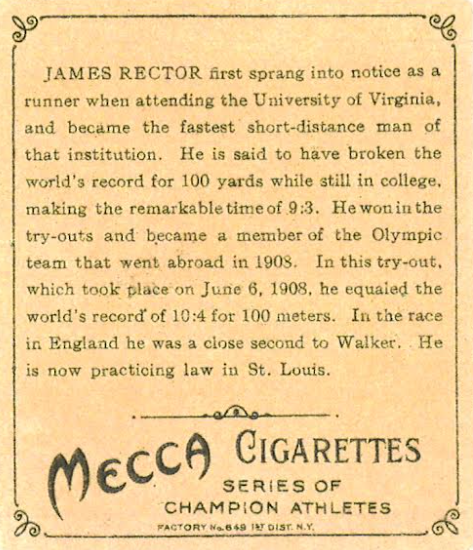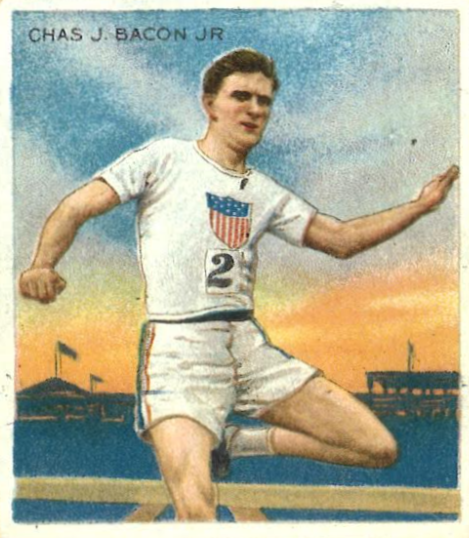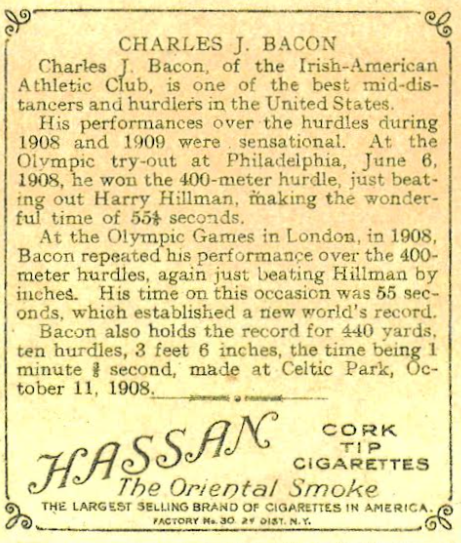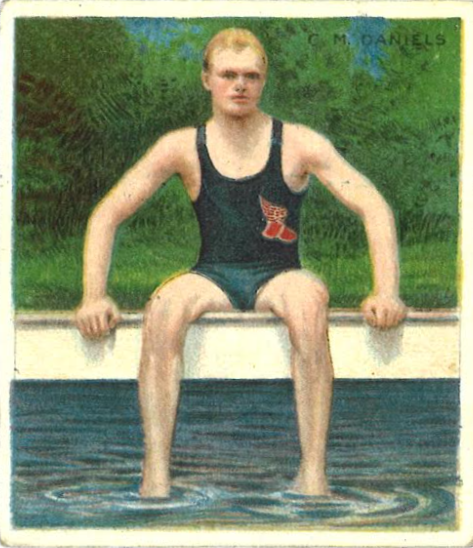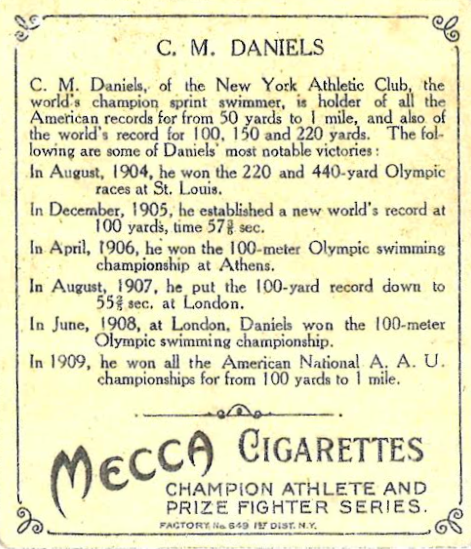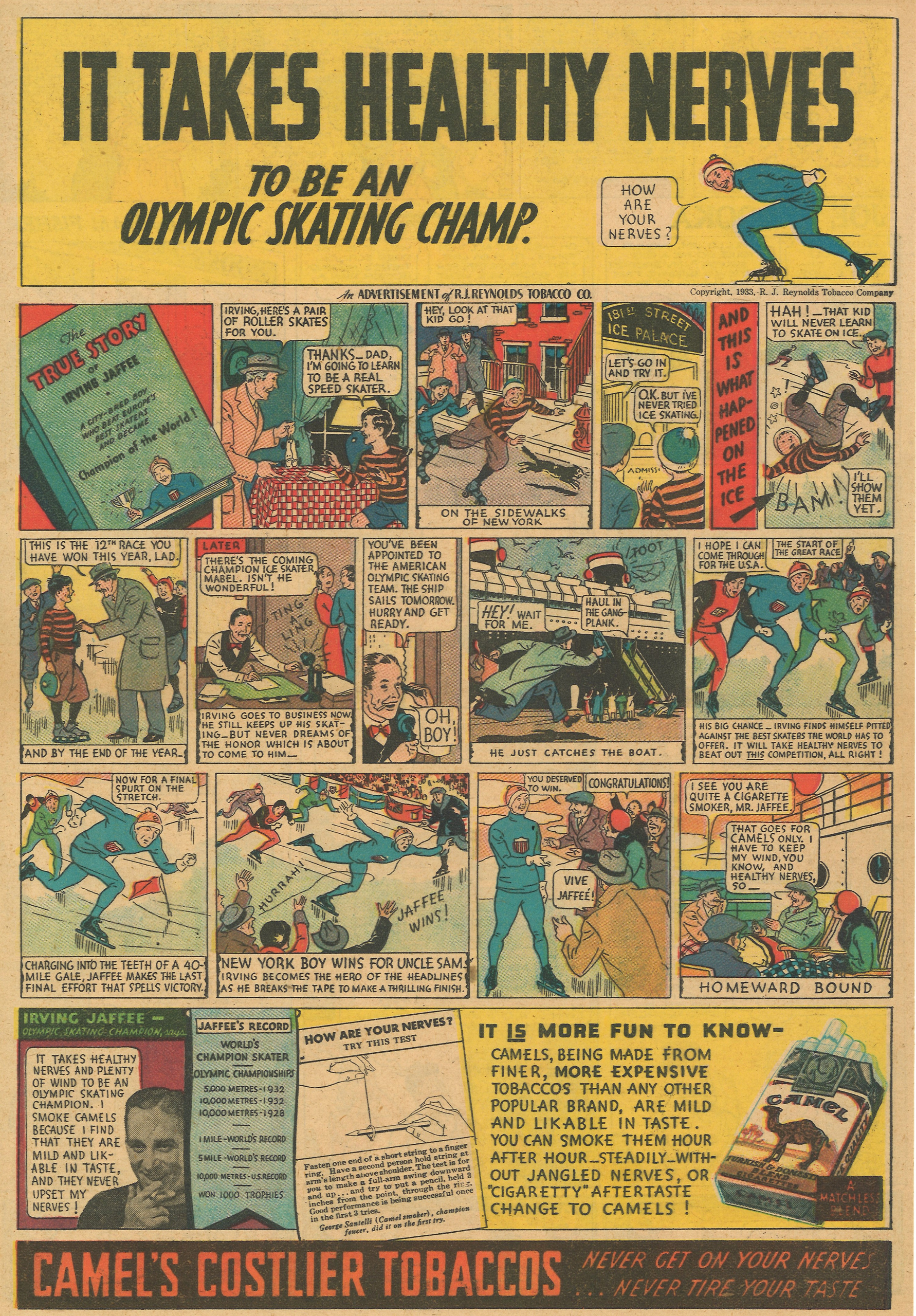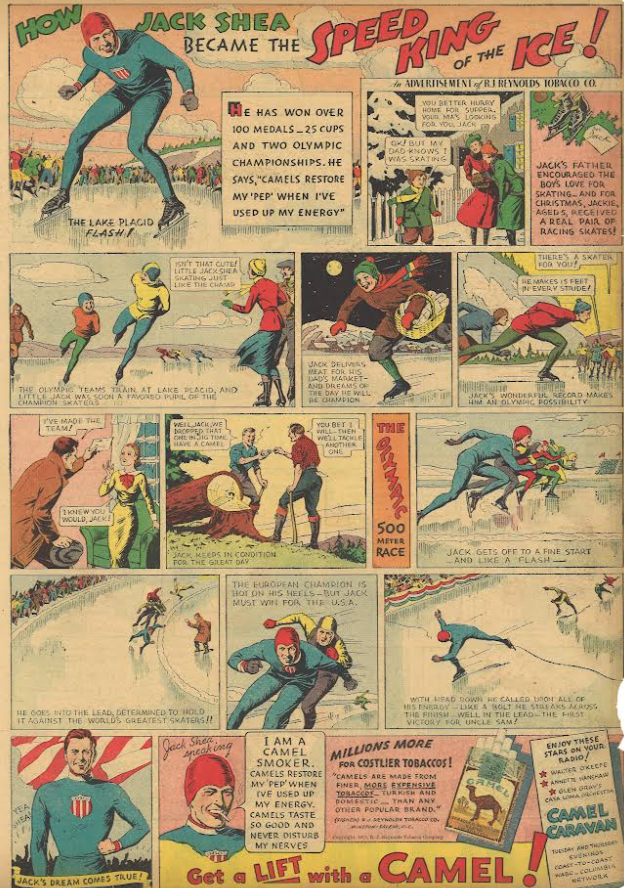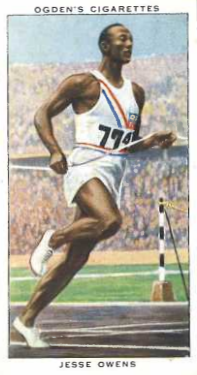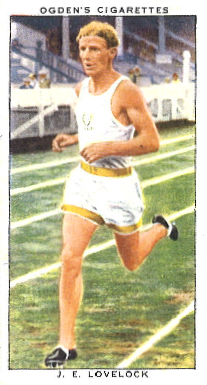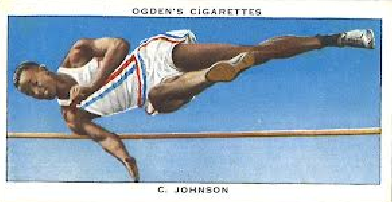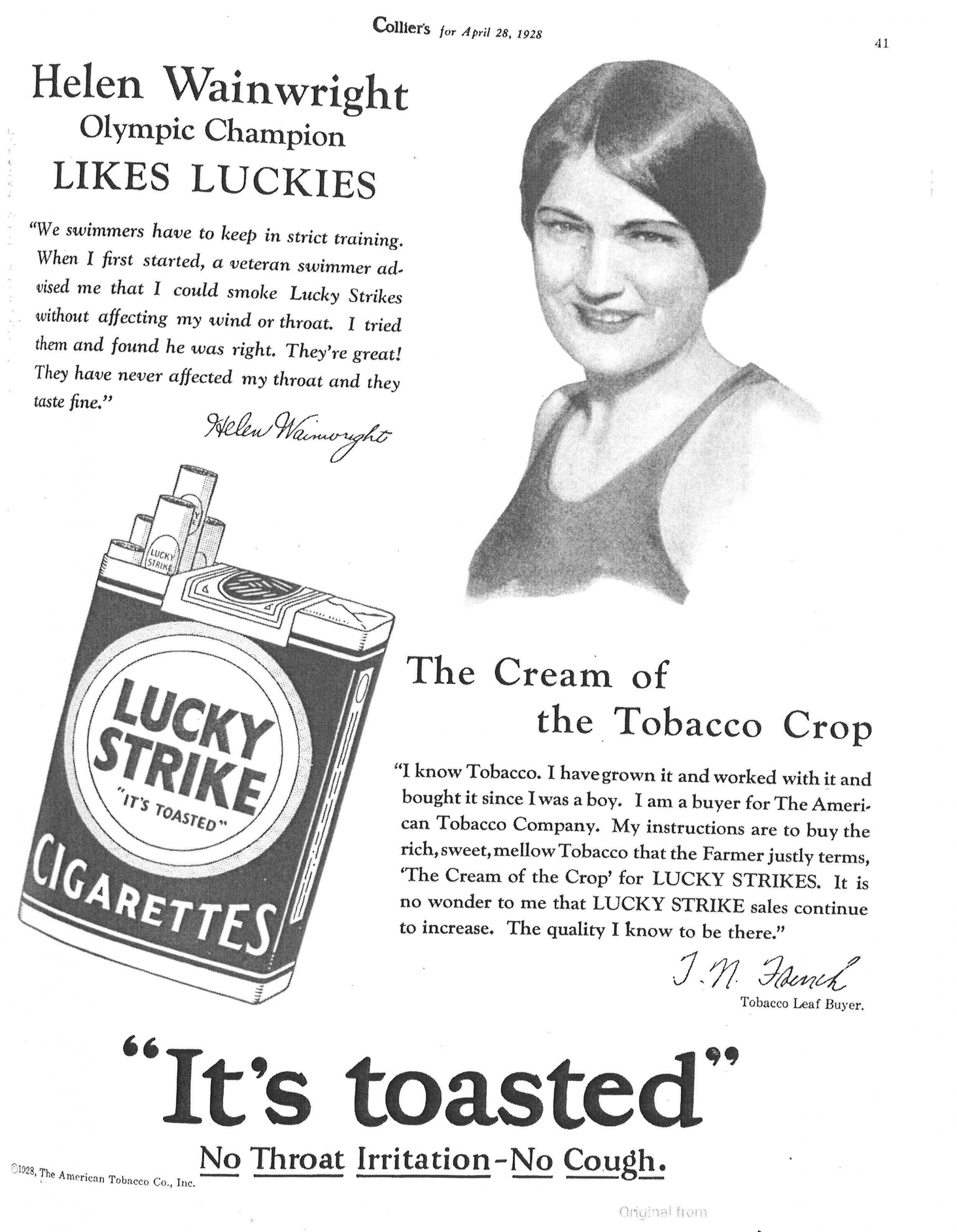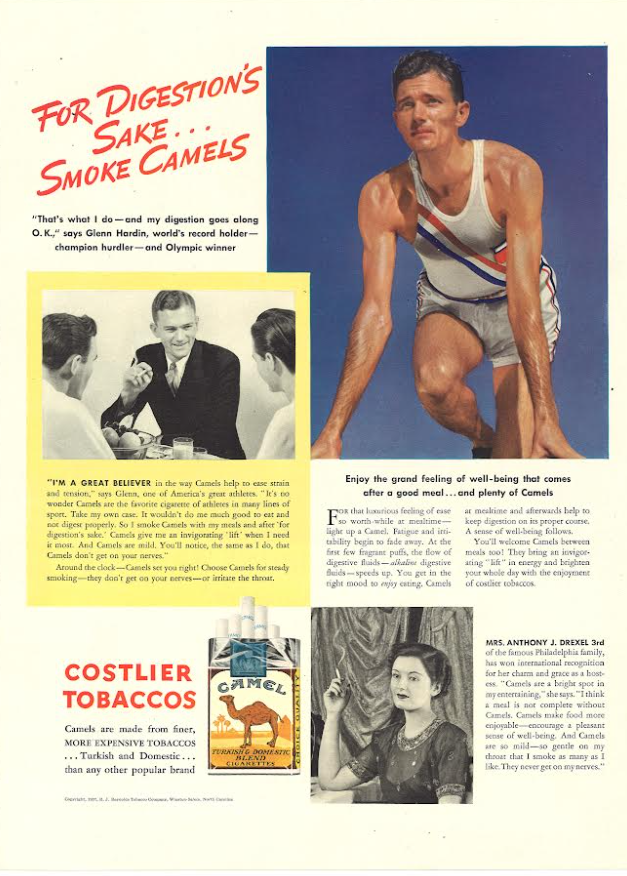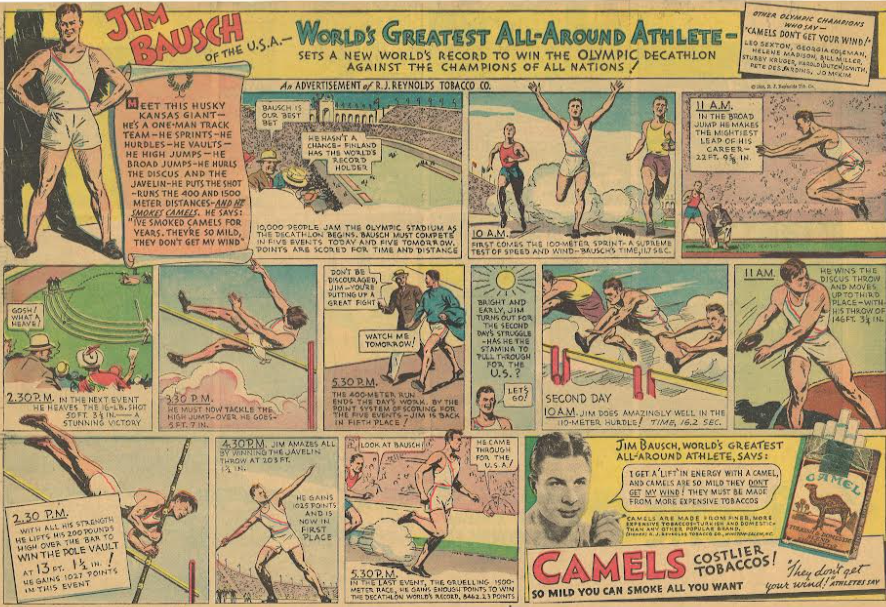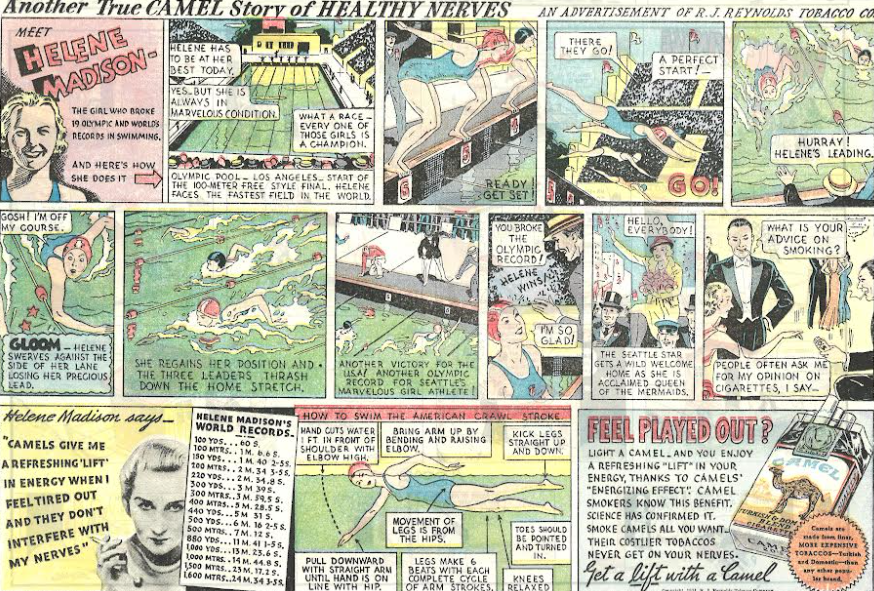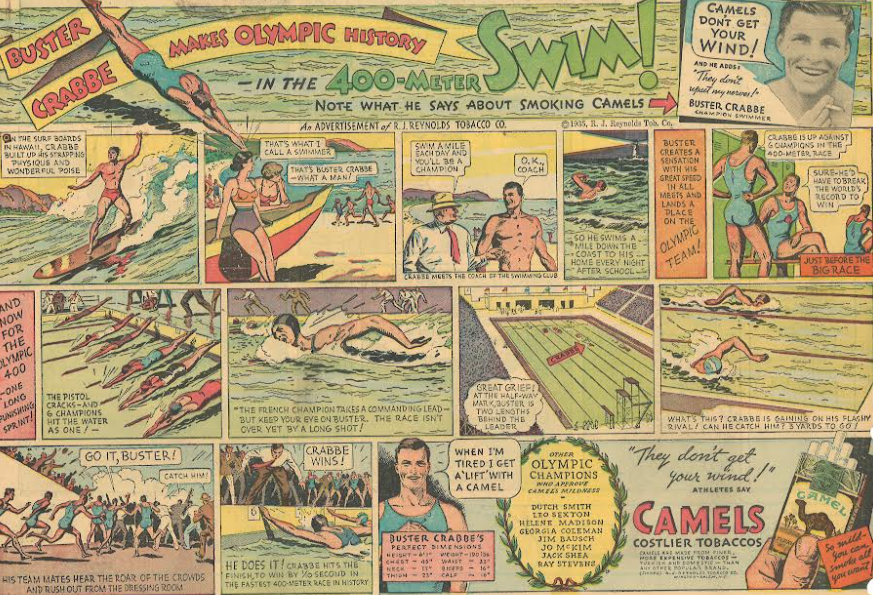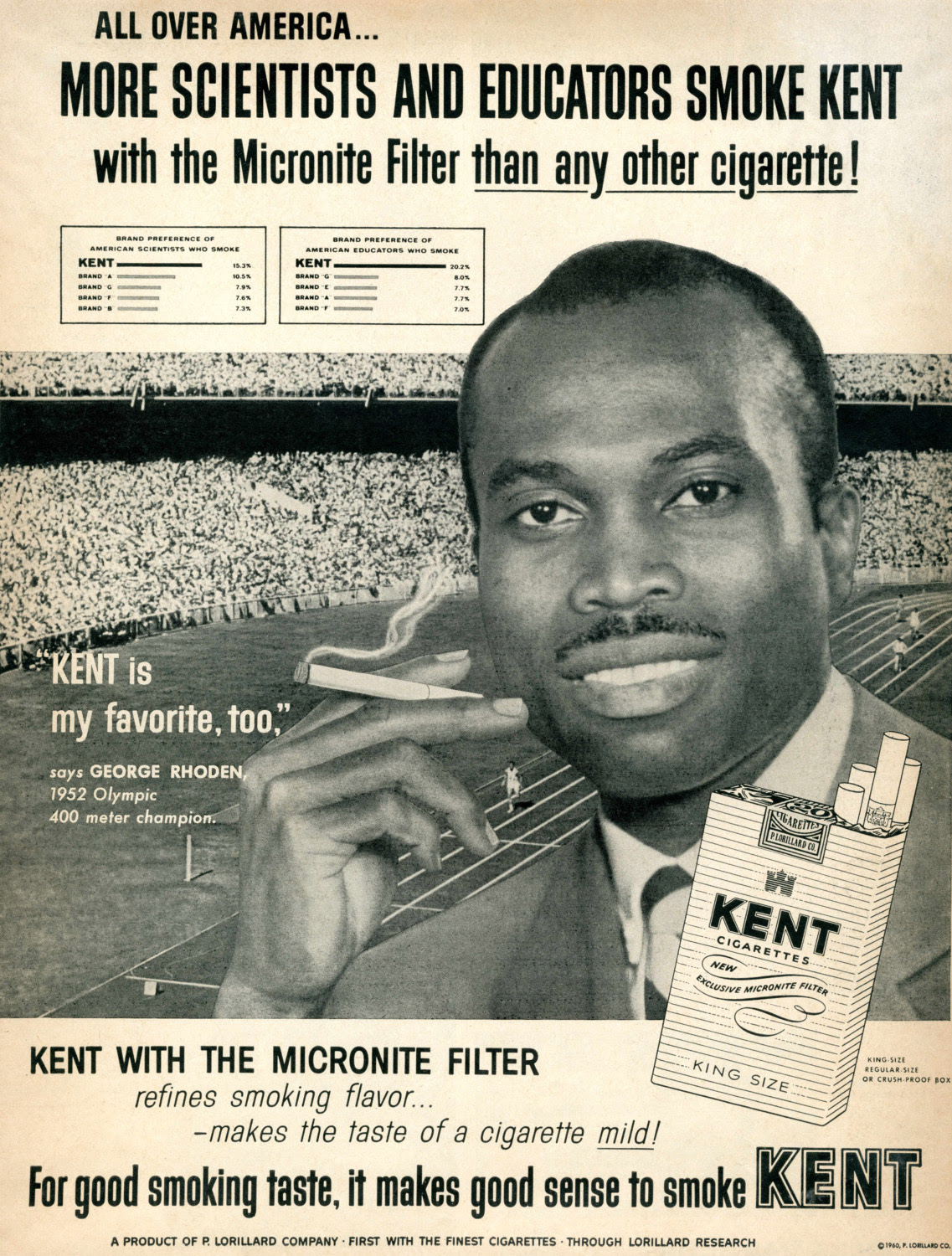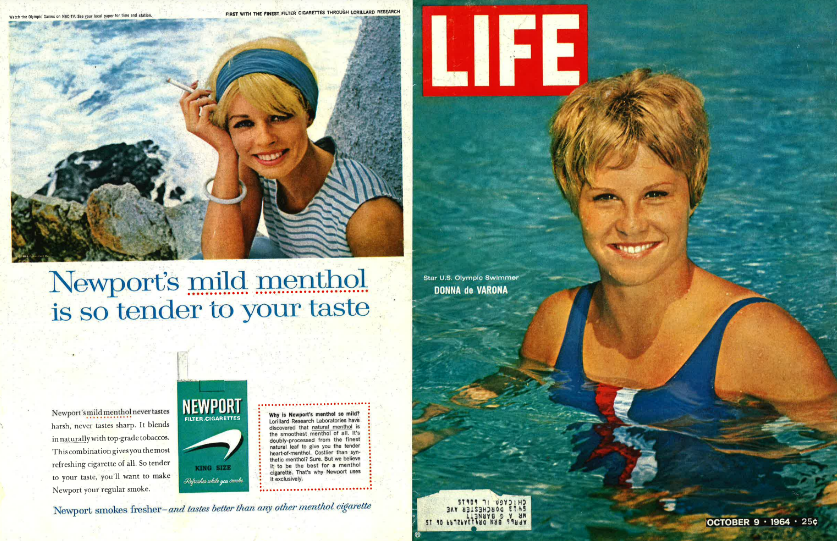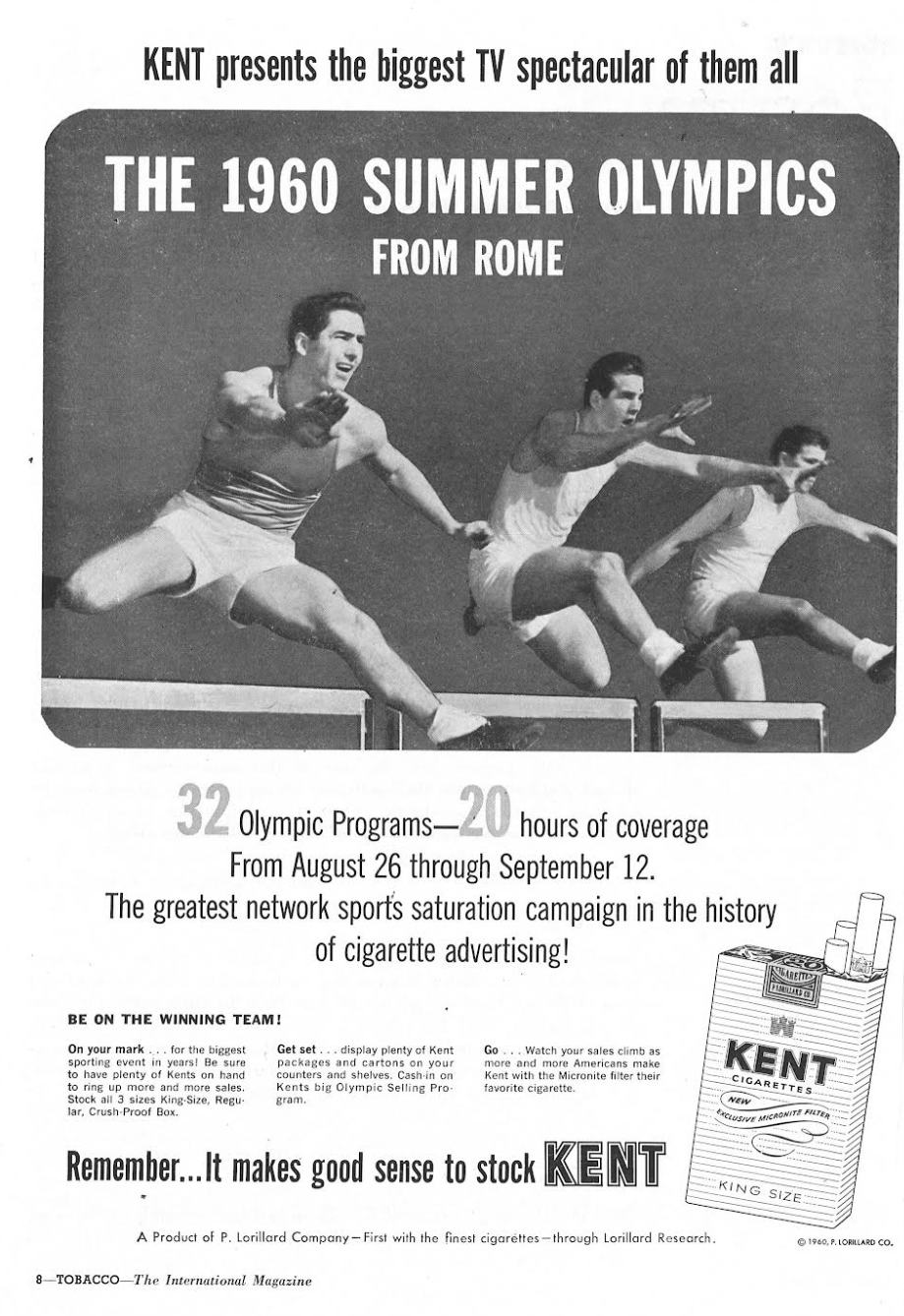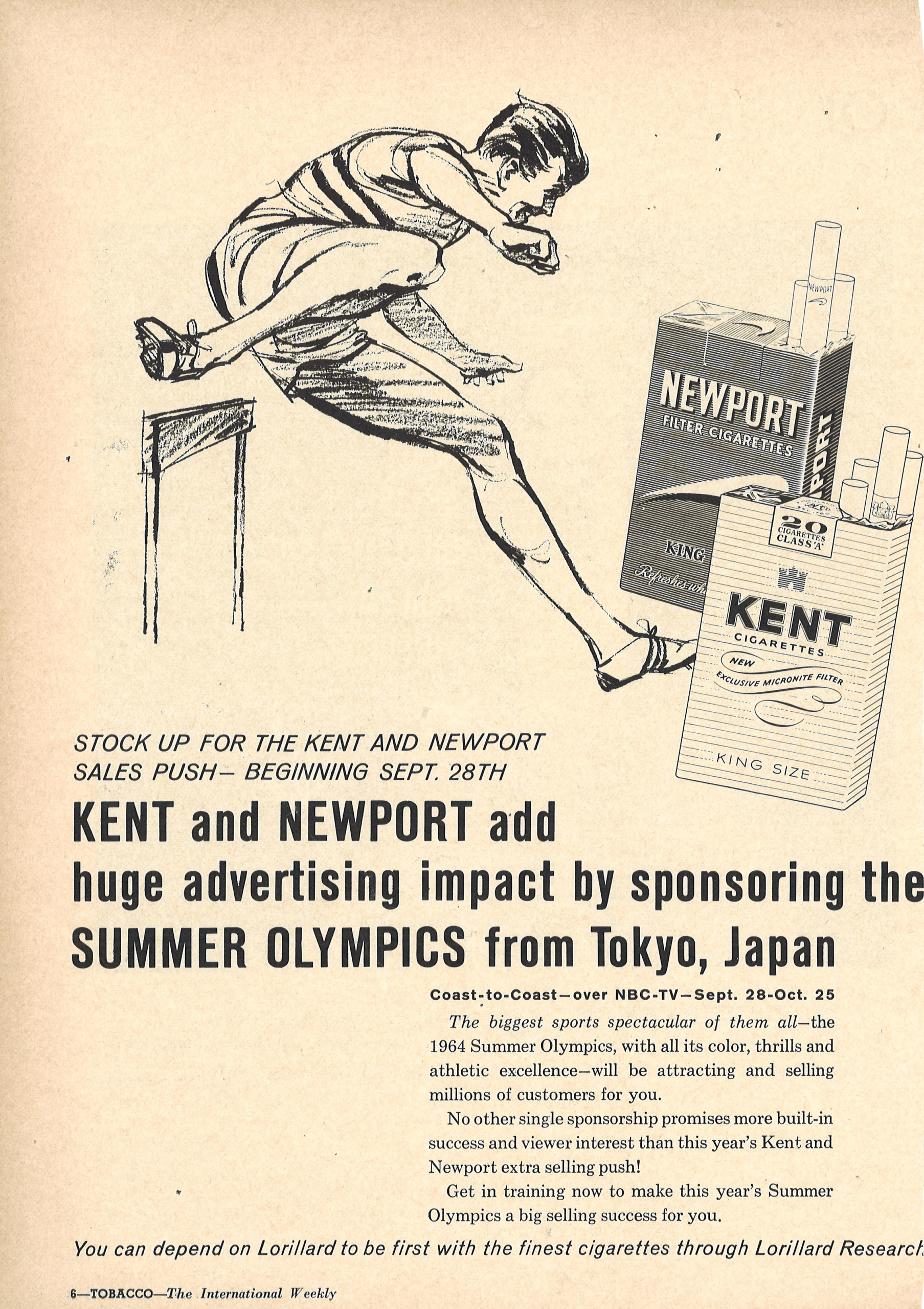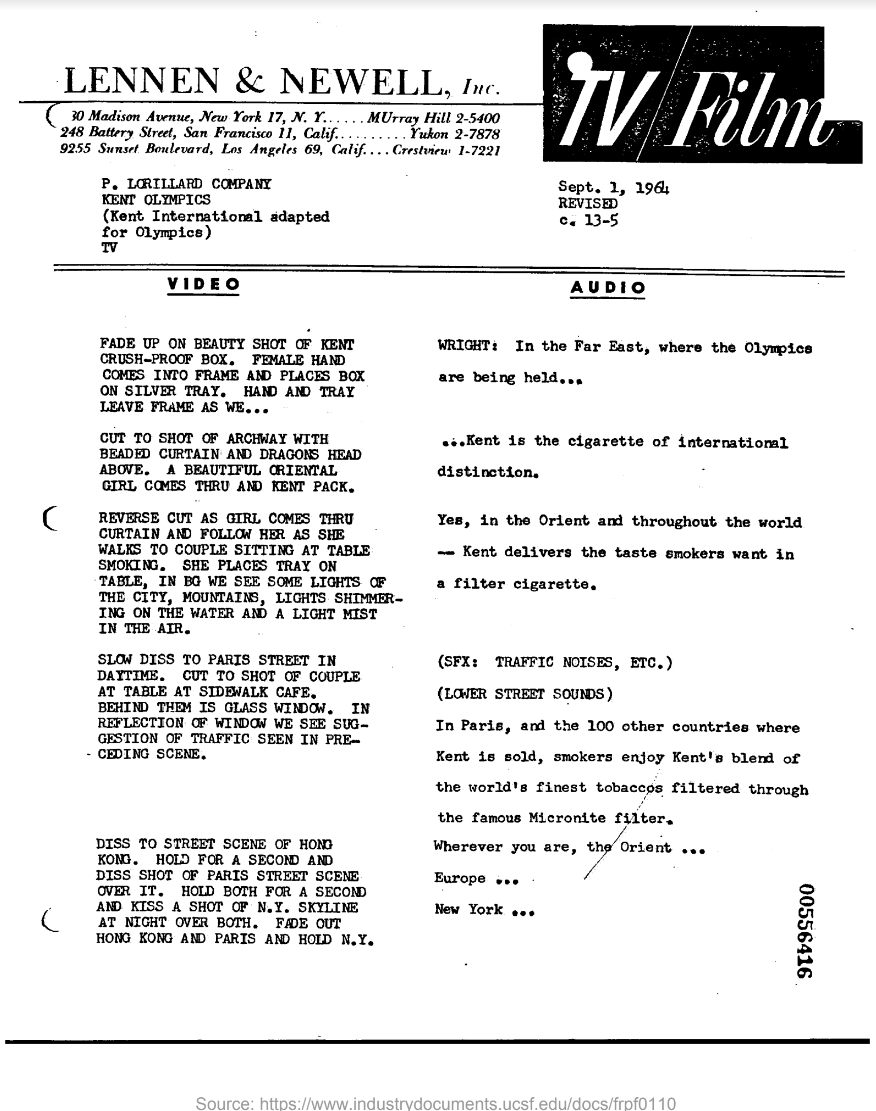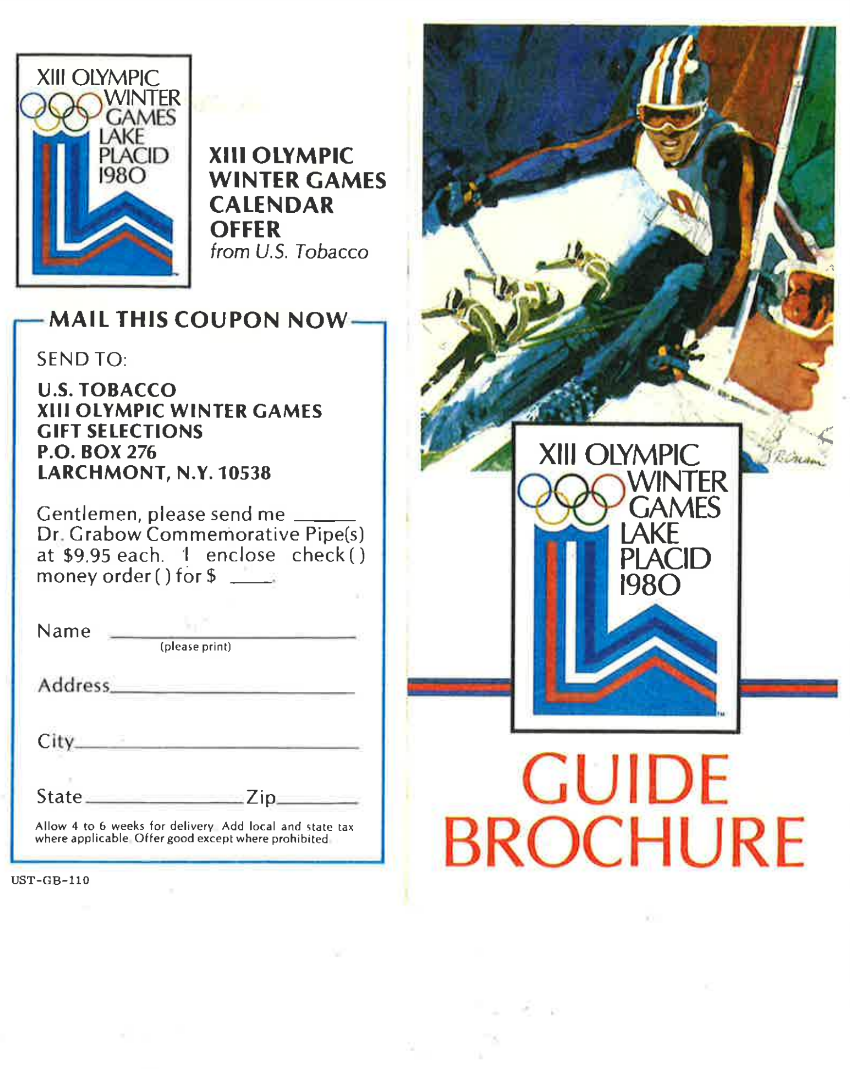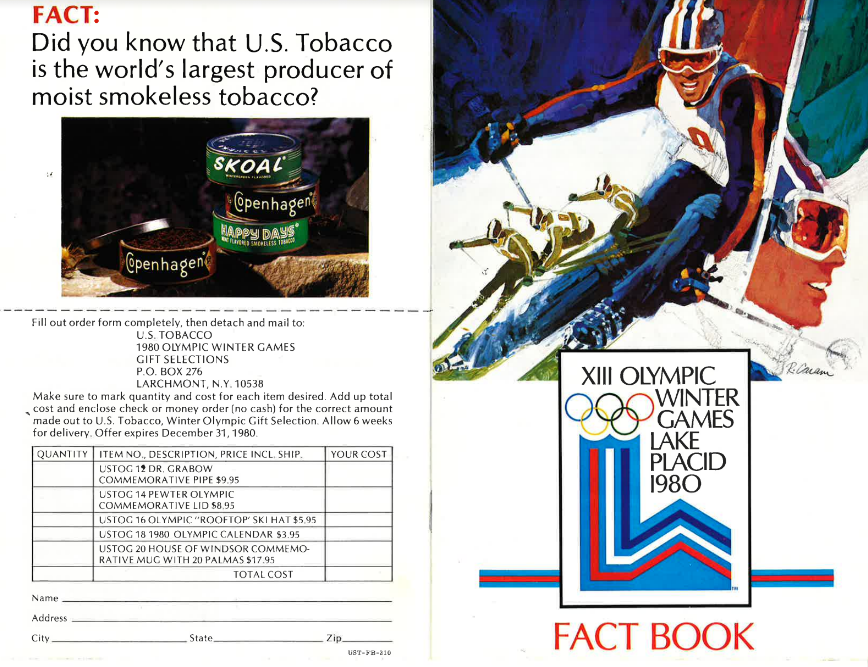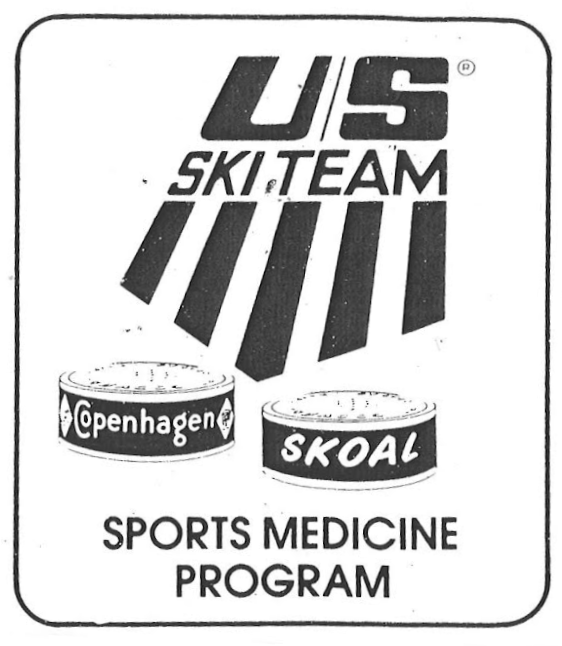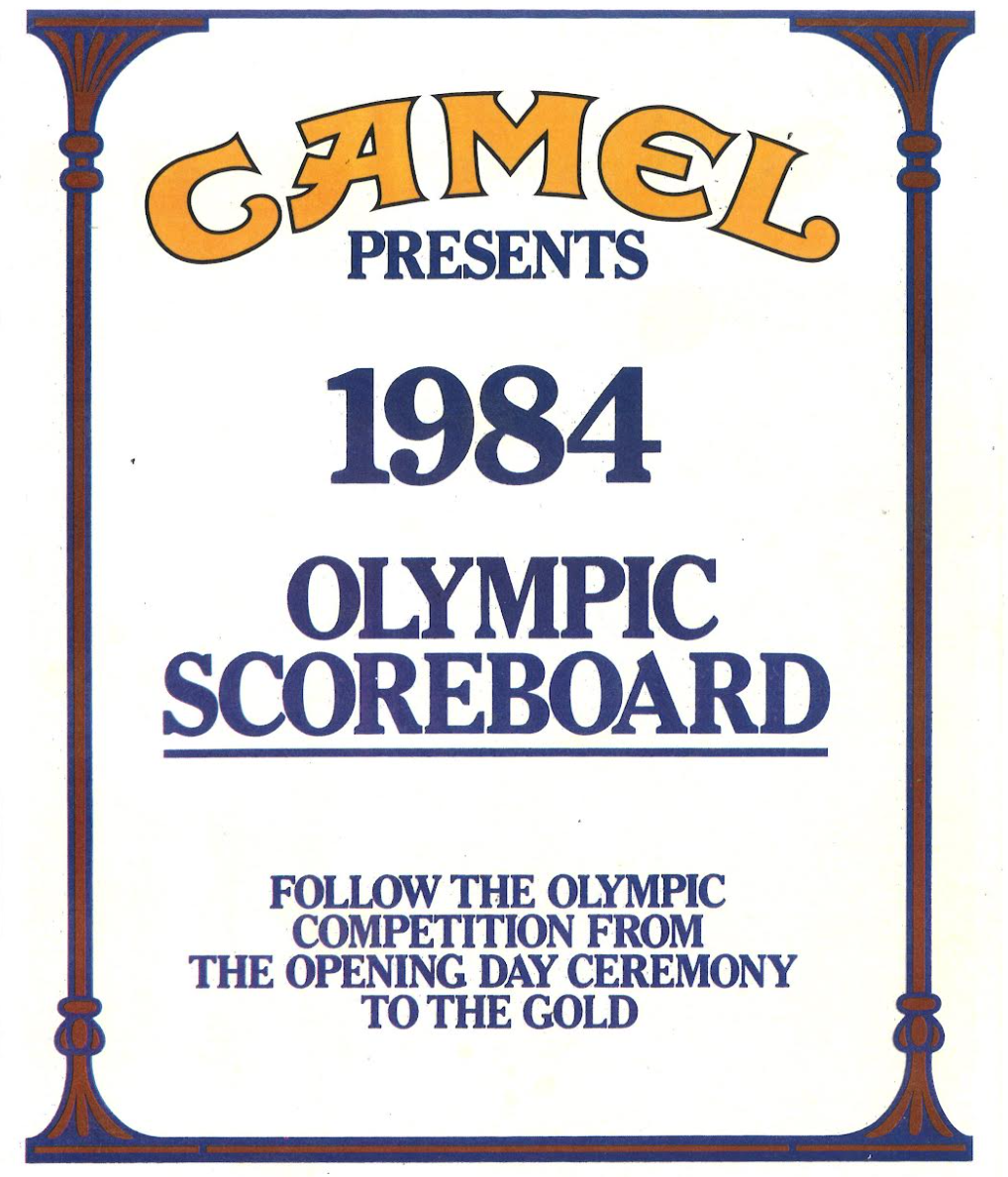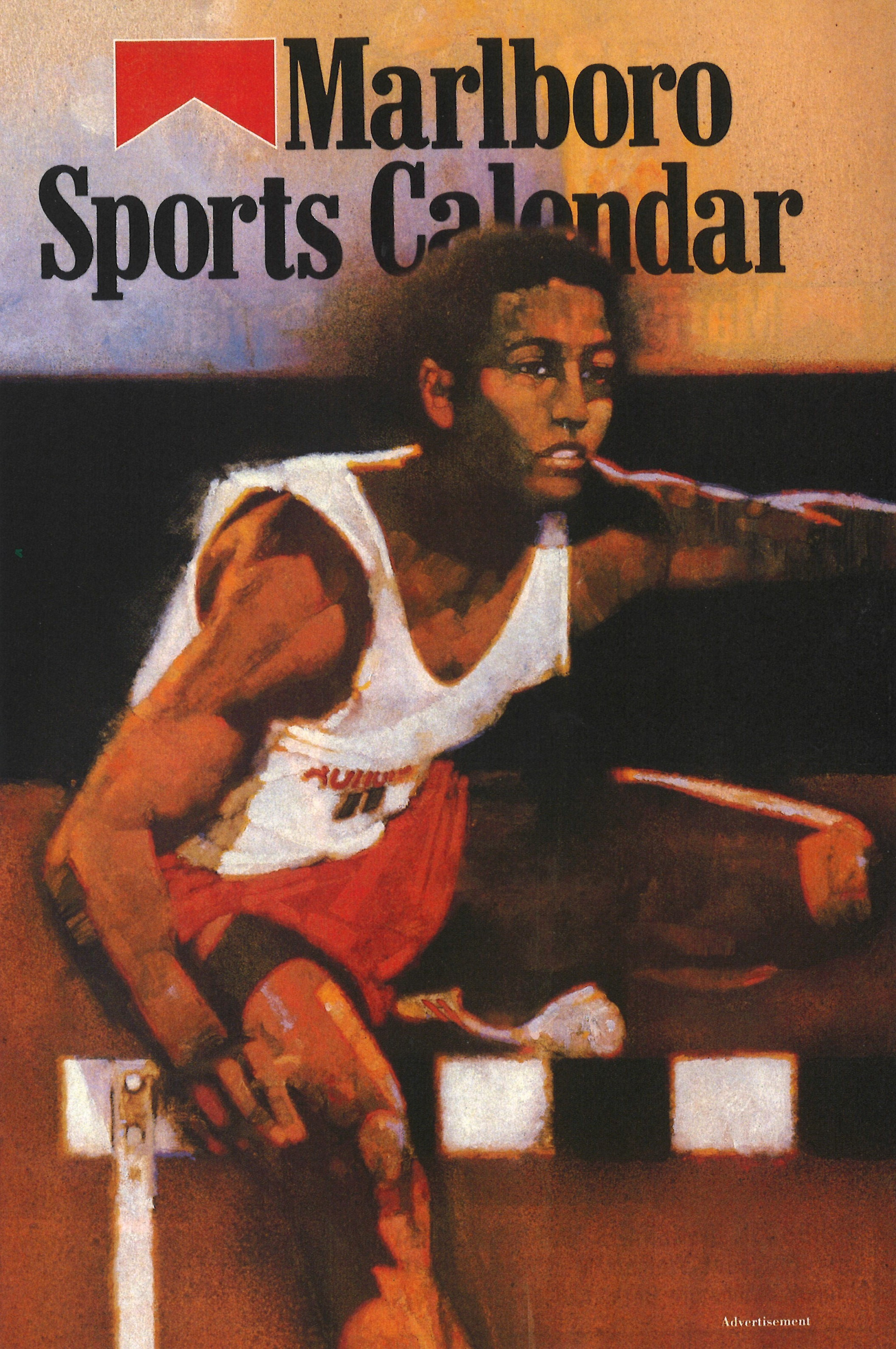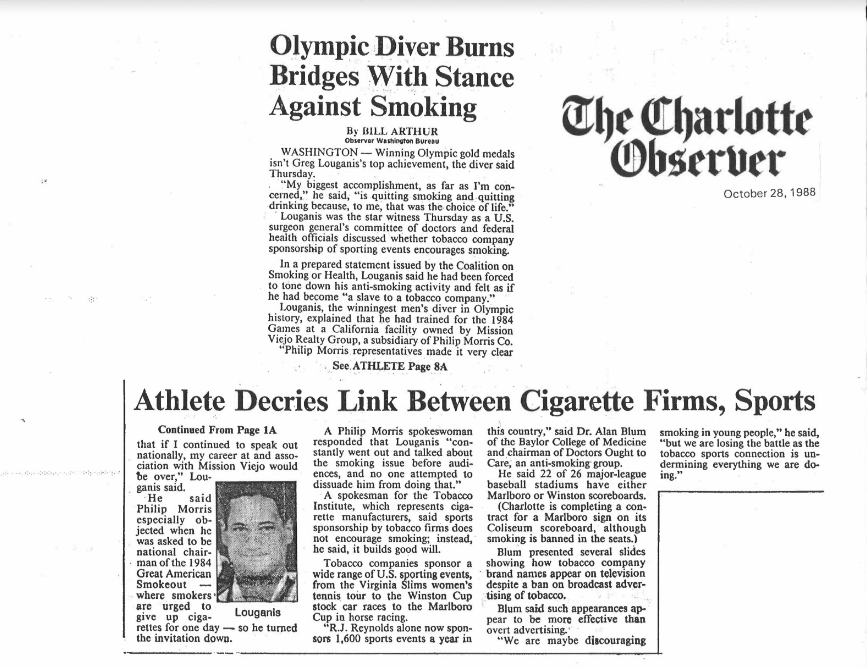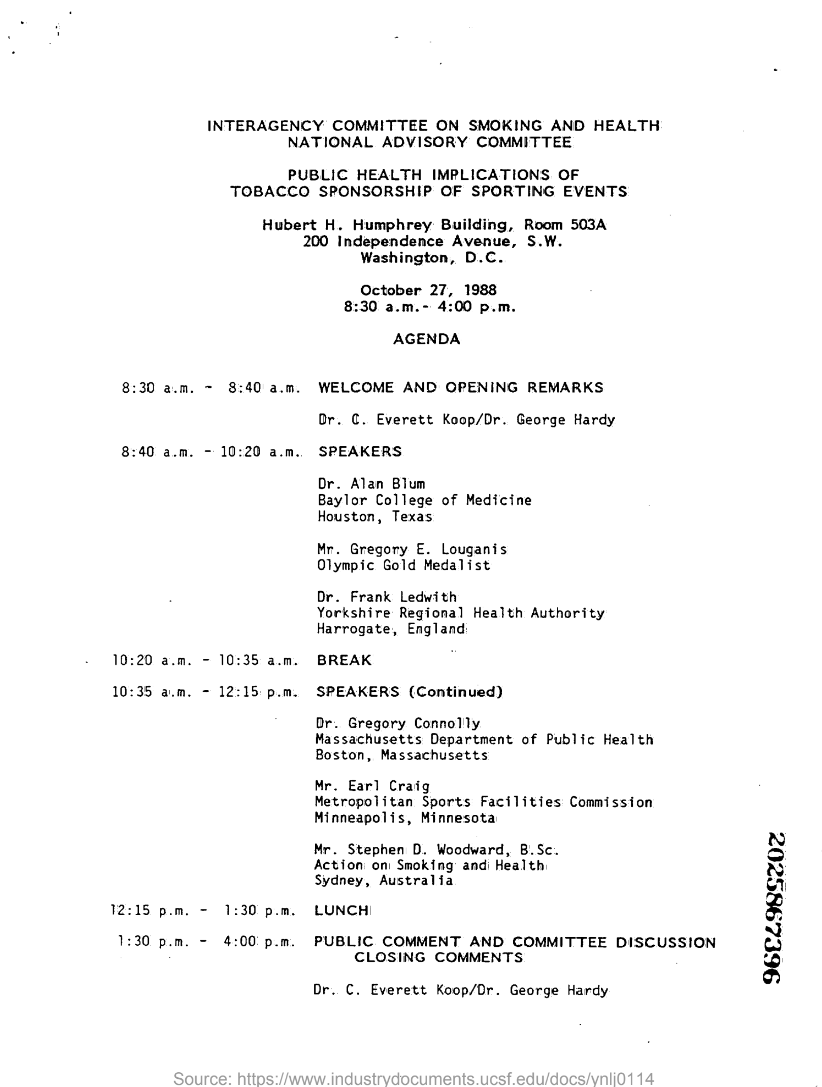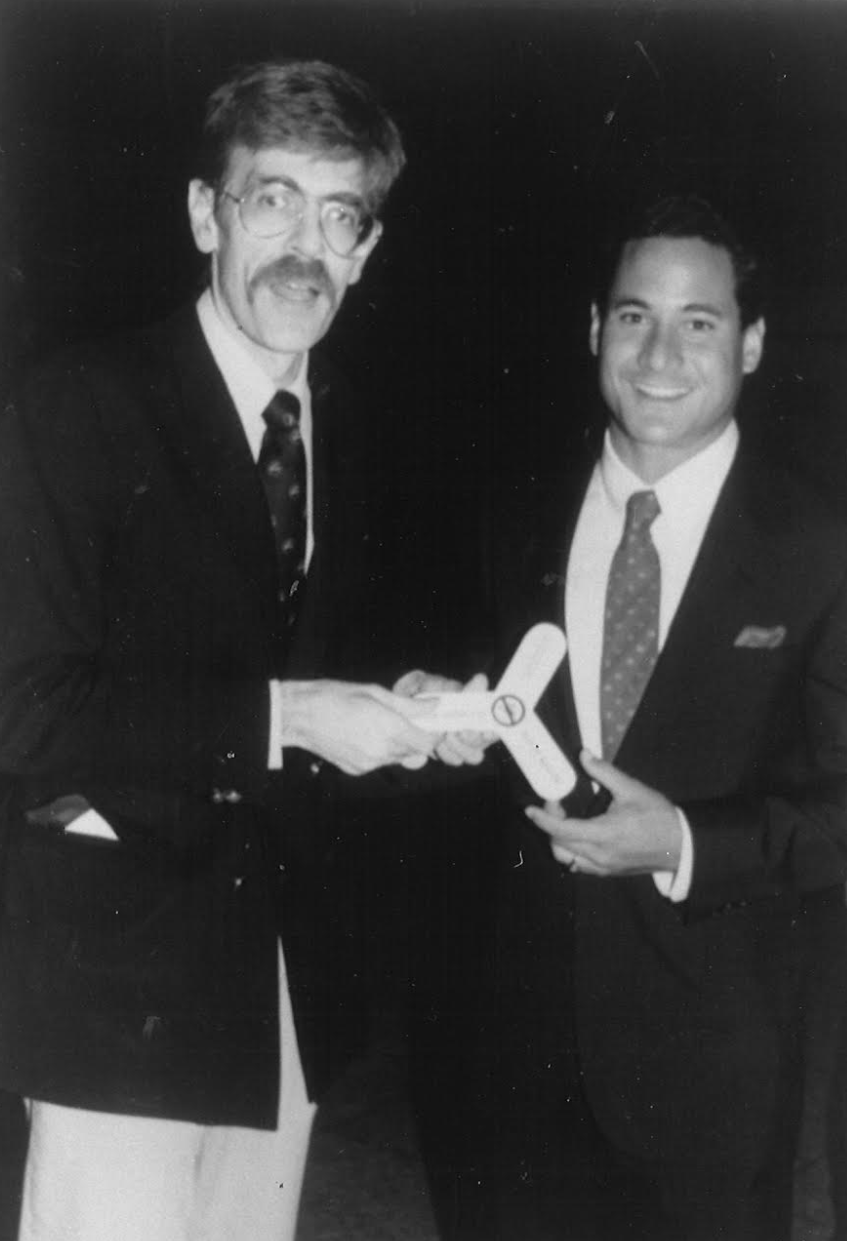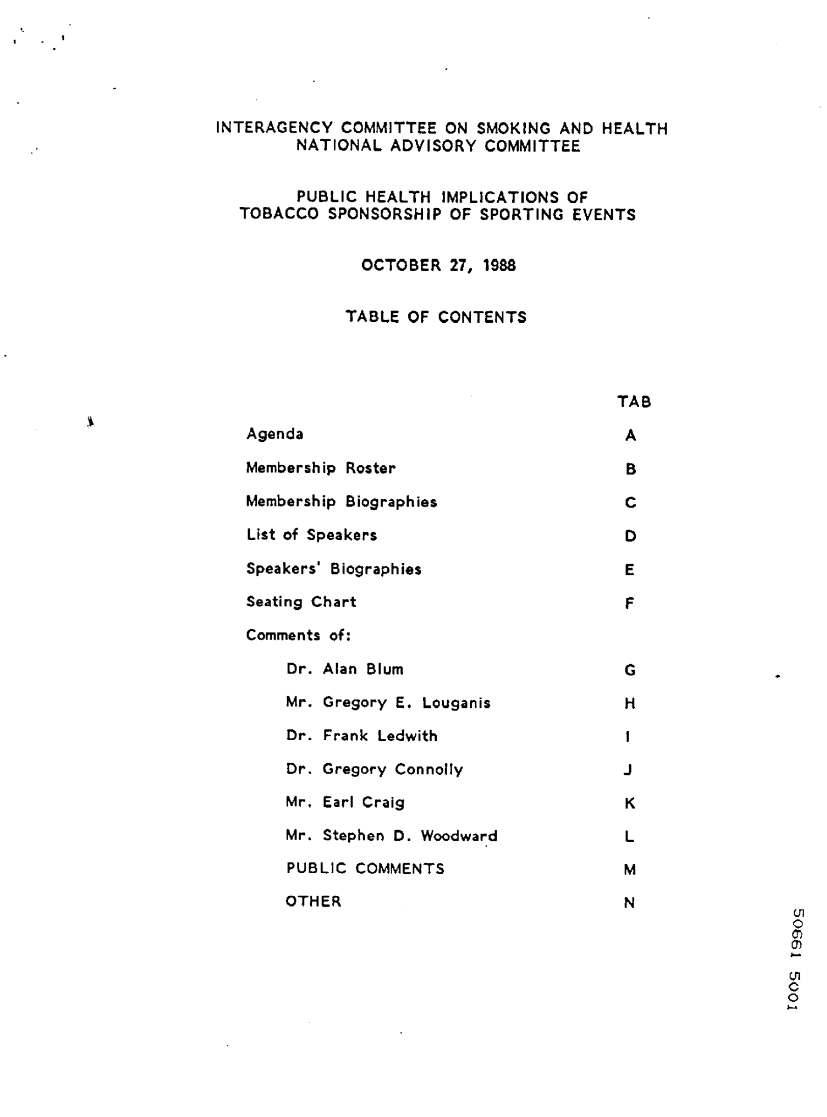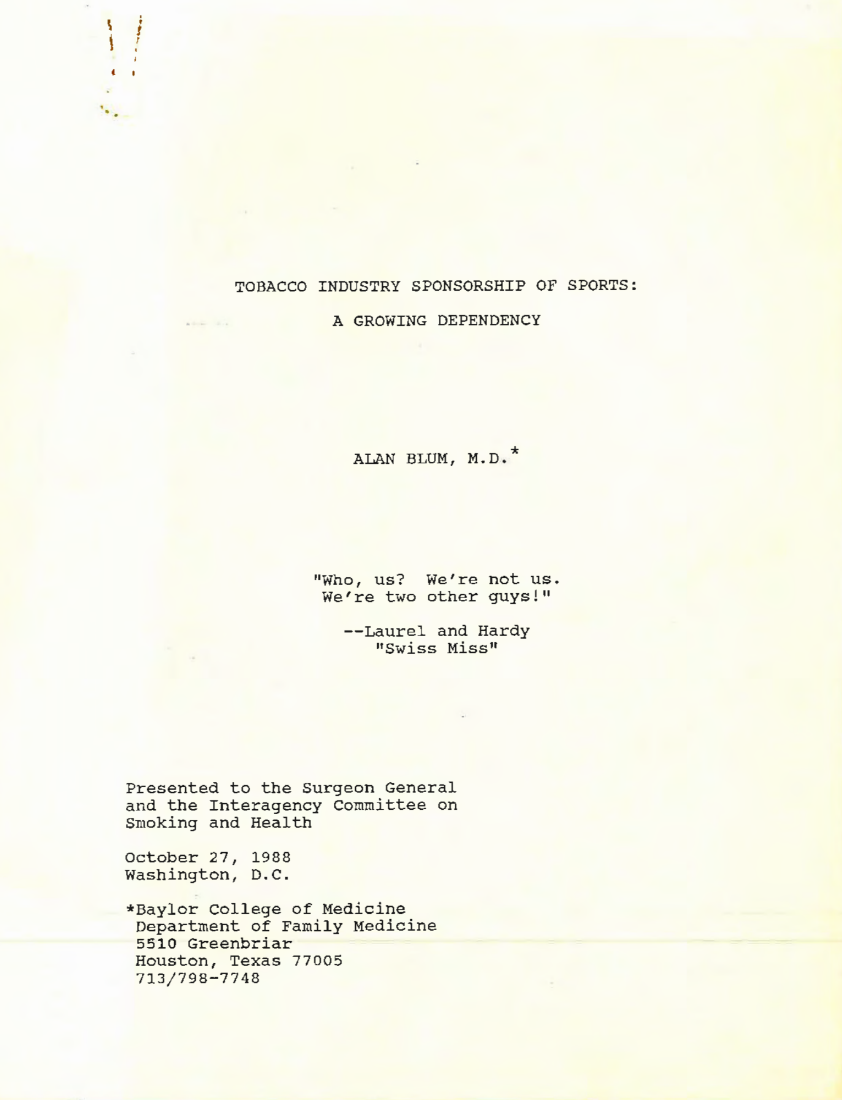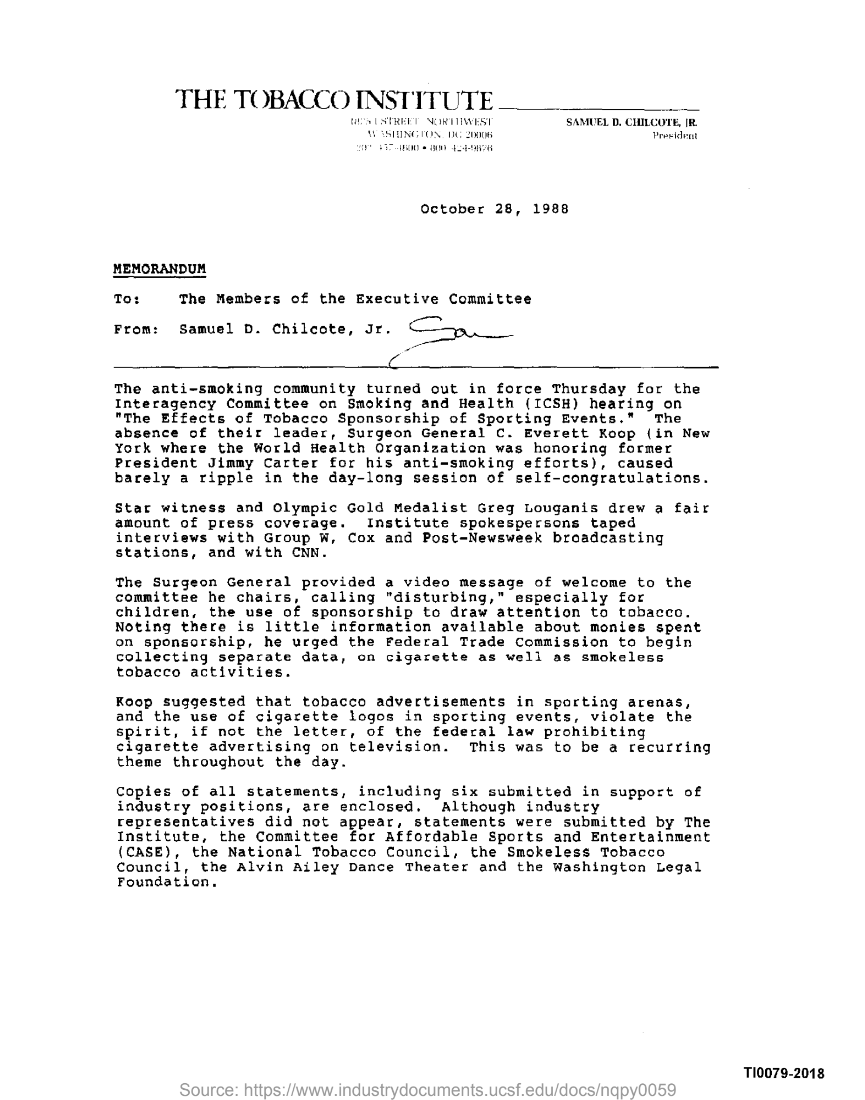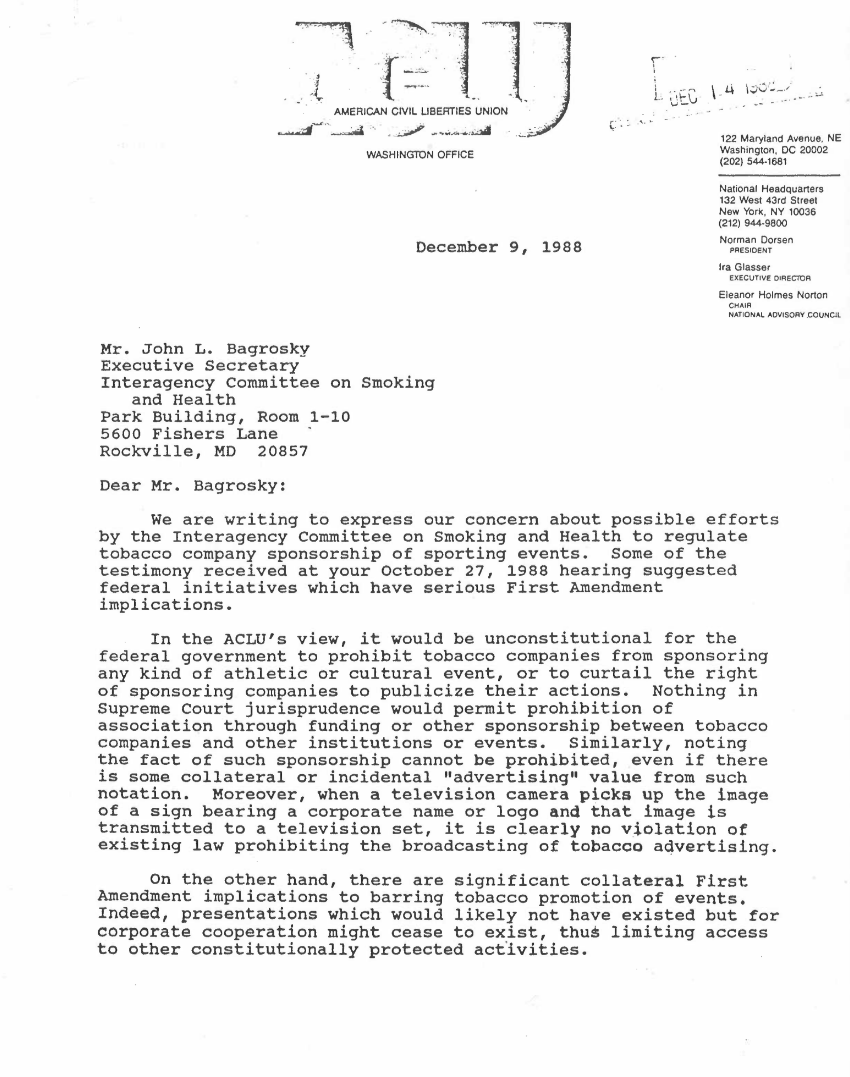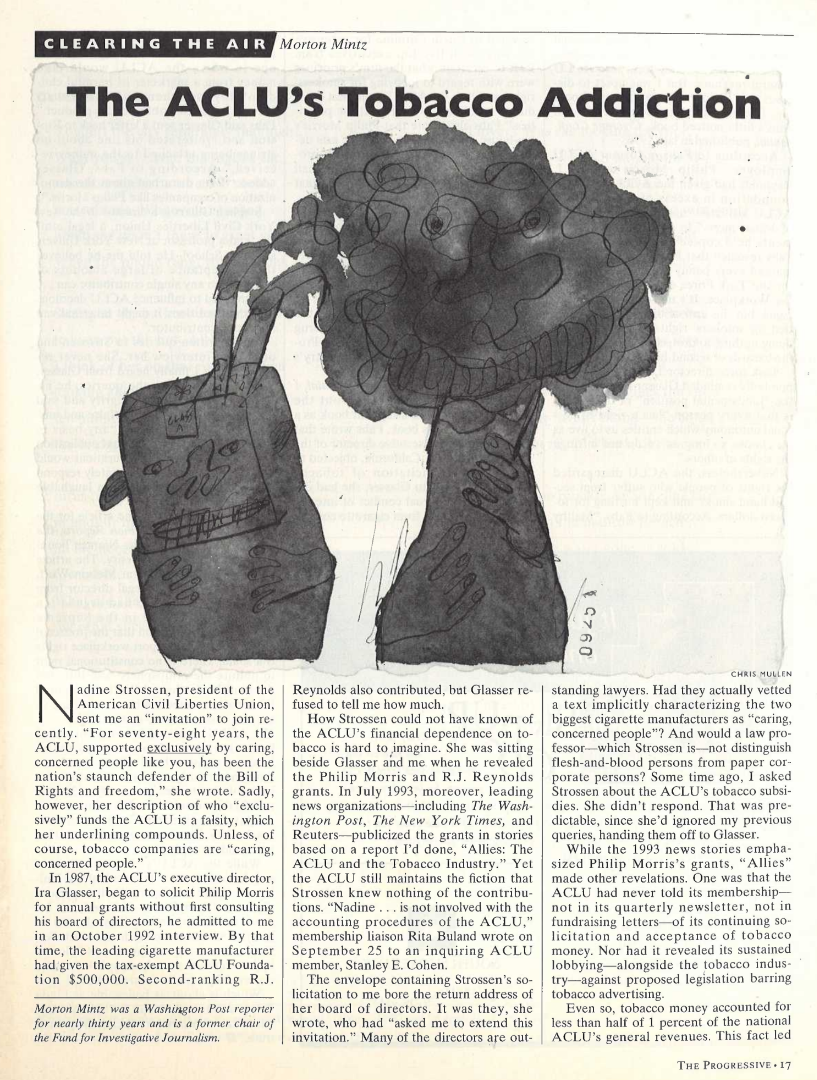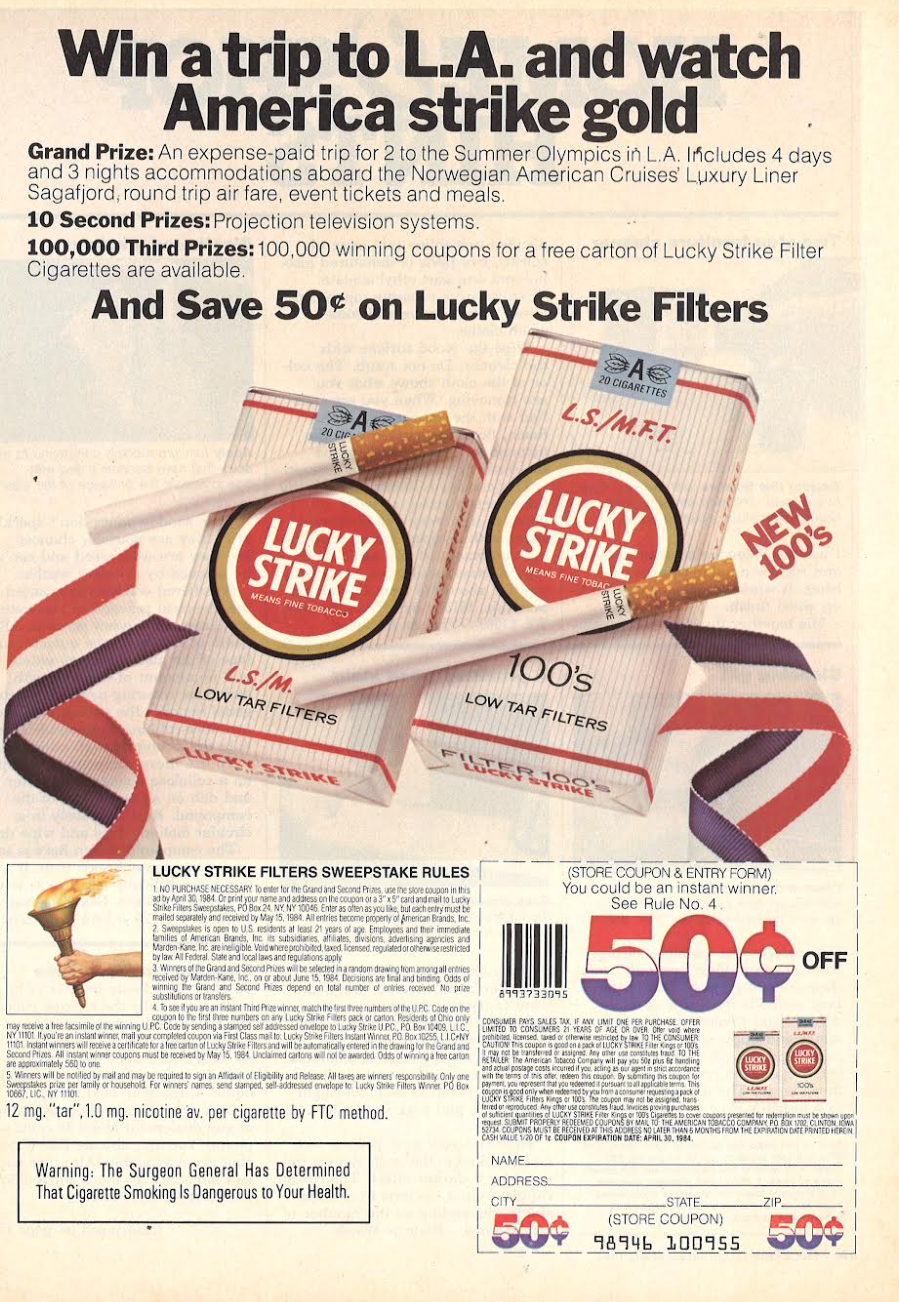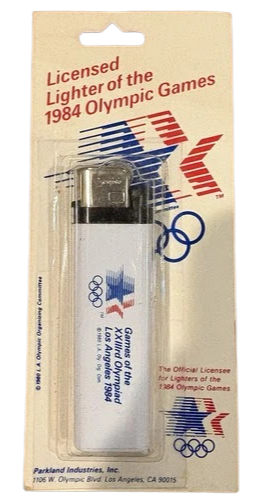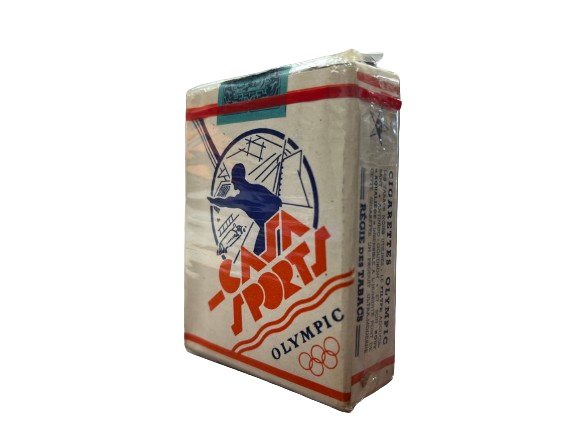The tobacco hucksters never made it into the Olympics, but that doesn’t mean they haven’t tried…
Click above image to view document
Click above image to view document
Within just a few years of the first modern Olympic Games in Athens in 1896, souvenir cards in cigarette packs were featuring Olympic athletes. Collecting and trading cigarette cards became a popular hobby among boys. By the 1910s, Olympic athletes were paid for endorsing brands of tobacco. In 1928, when women had won their equal smoking rights, Helen Wainwright, silver medal winner in both swimming and diving at the 1920 and 1924 Summer Olympics, would appear in an advertisement for Lucky Strike cigarettes, claiming that Luckies had never affected her “wind or throat.” In the 1930s, R.J. Reynolds Tobacco Company fielded a veritable team of men and women Olympic track and field stars, swimmers, divers, skaters, and skiers to promote Camel cigarettes on radio and in magazines and the Sunday funnies. Other Olympians endorsed Camels well into the 1950s.
In January 1964, less than a month after Surgeon General Luther Terry released the government’s landmark report indicting cigarette smoking as the leading cause of lung cancer, the P. Lorillard Tobacco Company’s Kent and Newport cigarettes sponsored the television broadcasts of the Winter Olympic Games. In September they would also sponsor telecasts of the Summer Olympic Games. In 1980, the U.S. Winter Olympics Team training facility in Lake Placid, New York, was sponsored by the United States Tobacco Company, maker of SKOAL and Copenhagen spitting tobacco; this sponsorship continued through the 1984 Winter Olympics. But in 1987, a campaign to ban smoking and tobacco advertising at the Olympic games, led by physician John Read, father of Canadian Olympic skier Ken Read, resulted in the Calgary Winter Olympic Games becoming the first smoke-free Olympics. Since then, every Summer and Winter Olympic Games has adopted a smoke-free policy – and a completely tobacco-free policy since 2010.

